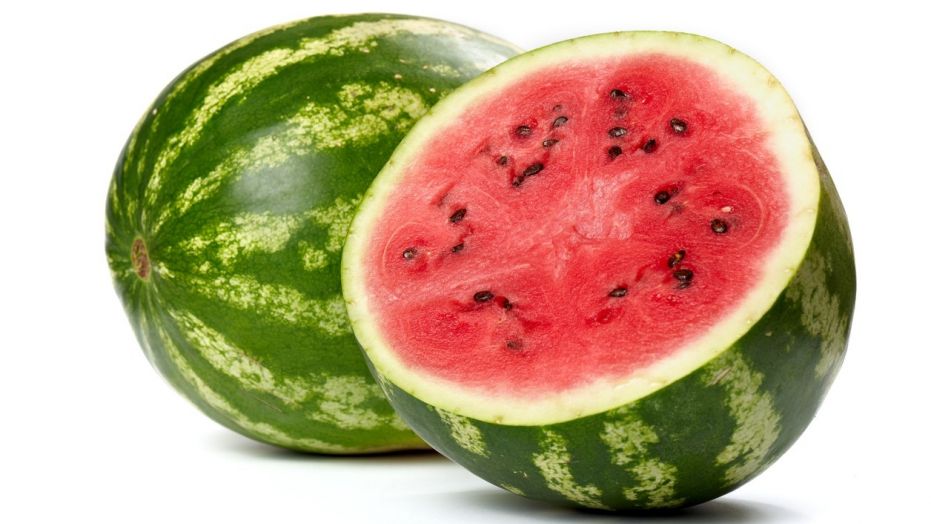Health Benefits Of Watermelon
All the above components of watermelons contribute to their major impact on health; let’s explore some more details of those benefits below.
1. Treats Kidney Disorders
Watermelons contain a lot of potassium, which is very helpful in cleaning out the toxic depositions in the kidney. Moreover, they are helpful in reducing the concentration of uric acid in the blood, thereby reducing the chances of kidney damage and the formation of renal calculi. In addition to this, being high in water content, watermelons induce urination, which is again helpful for cleaning the kidneys. Also, the antioxidants present in watermelon ensure good health of the kidneys for a long time and reduce signs of premature aging like wrinkles and age spots on the skin.
2. Prevents Heat Stroke
Watermelon is effective in reducing both your body temperature and blood pressure. Many people in tropical regions eat this fruit every day in the afternoon during summer to protect themselves from heat stroke. The high amount of water in watermelons also stimulates a release of excess liquid in the form of sweat, which cools your body further during hot summer days.
Read Also: Best Home Remedies for Cholesterol
3. Regulates Blood Pressure
The amount of potassium and magnesium present in watermelons is very beneficial in terms of lowering blood pressure. Potassium is considered a vasodilator, meaning that it releases the tension on blood vessels and arteries, thereby stimulating blood flow and reducing the stress on the cardiovascular system. The carotenoids present in these fruits also prevent hardening of artery walls and veins, thereby helping reduce blood pressure and the chances of blood clots, strokes, heart attacks, and atherosclerosis.
4. Prevents Cancer
Watermelons have gained a lot of attention in recent years, primarily because of their impressive level of lycopene, a carotenoid phytonutrient compound that is increasingly being linked to cancer prevention. Lycopene has been shown to significantly reduce the risks of prostate, breast, colon, lung, and endometrial cancer. All in all, between the antioxidant potential of vitamin C and the impact of lycopene, watermelon is a great anti-cancer fruit!
Read Also: What foods to avoid with diabetes?
5. Controls Diabetes
Diabetics, who are supposed to have a low energy and low sugar diet, often complain about starving since they don’t get to eat their staple diets, which gives them the feeling of being half-fed. Watermelons can be a good supplement for them. In spite of being sweet in taste, a thick wedge will give them very few calories, since ninety-nine percent of its total weight is composed of water and roughage. Moreover, the vitamins and minerals such as potassium and magnesium help in proper functioning of insulin in the body, thus lowering the blood sugar level. Arginine, another component found in watermelons, is very effective at enhancing the impact of insulin on blood sugar. Diabetics can also have curries, steaks, and salads made from watermelon rinds, which are even lower in sugar.
6. Heart Health
Lycopene, a carotenoid found in abundance in watermelon, improves cardiac functions. Beta-carotene, known for its great antioxidant and anti-aging properties, keeps you young at heart and prevents age-related cardiac problems. The roughage in watermelon, along with vitamin C, carotenoids, and potassium (potassium cuts the risk of a heart attack), helps reduce cholesterol and keep your heart safe from many dangerous conditions.
7. Prevents Macular Degeneration
Don’t worry about eye health and macular degeneration if you eat plenty of watermelons. Thanks to the beta-carotene, vitamin C, lutein, and zeaxanthin, your eyes are well protected. They ensure the protection of your eyes from age-related blindness and degeneration and prevent your eyes from ailments such as drying up of eyes and optic nerves, as well as glaucoma.
Read Also: Benefits Of Walnuts
8. Cures Impotence
Arginine, present in watermelon, is beneficial in curing erectile dysfunction, and the stimulating nature of the chemical can boost the libido, reduce frigidity, and give your love life a fresh start after you enjoy a few slices of watermelon together!
9. Other Benefits of Watermelon
Seeds of watermelon are rich rich source of fats and proteins. It contains phytonutrients which is good for the health and proper functioning of internal organs, eyes, and the secretion system.



 Contact Us
Contact Us






 Hospitals
Hospitals
 Doctors
Doctors
 Diagnostic
Diagnostic
 Pharmacy
Pharmacy
 Health Tips
Health Tips
 Blog
Blog

















Comments